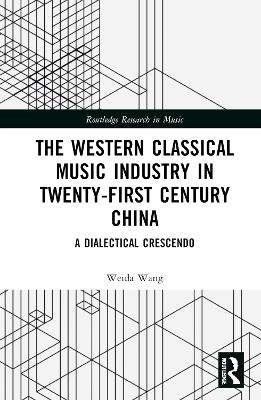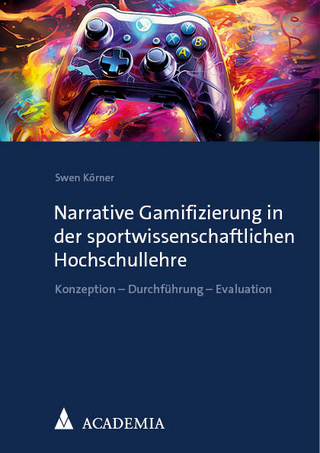
The Western Classical Music Industry in Twenty-First Century China
Routledge (Verlag)
978-1-032-56521-7 (ISBN)
- Noch nicht erschienen (ca. März 2025)
- Versandkostenfrei
- Auch auf Rechnung
- Artikel merken
Weida Wang explores how Western classical music (WCM) has become increasingly popular in China, framing the industry as a complex entity intricately embedded within China’s political landscape, cultural economy, and cultural industries. Wang highlights how authorities and organisers strive to build powerful brands to support the industry's growth, aiming to tap into the vast domestic market and showcase China’s achievements in WCM on the global stage as part of broader cultural diplomacy efforts. The study delves into the mechanisms and underlying logics driving the rapid expansion of the Western classical music market in contemporary China.
With the rise of China’s economy since its government’s late-1970s economic and political reform, WCM has become a useful tool for showcasing changes to the image of ‘modern’ and ‘contemporary’ China. At the same time, a new Chinese middle class, following the rapid economic (and cultural) development in China’s coastal cities, has also emerged, becoming a substantial demographic involved in the learning, appreciation, and consumption of WCM. Especially in the past twenty years, a new WCM scene has developed quickly and established as an industry in China; one critically enmeshed in both the business and political worlds. Many ground-breaking cultural events have taken place in the last decades. These have shown themselves to be huge forces behind the development of China’s domestic (and fledgling international) classical music aspirations.
The book will be valuable for those interested in arts/music management, music industry studies, China studies, cultural and creative industry studies, and ethnomusicology.
Weida Wang is a scholar and lecturer specializing in music industry studies, sound art studies and cultural studies in music. With a PhD in music from Royal Holloway, University of London, Wang serves as a lecturer and guest lecturer at institutions such as the University of Liverpool, Heidelberg University, and Point Blank Music School in London.
List of Figures
List of Tables
Introduction
Chapter One Discoursing the Western classical music industry in China: Contexts and Conditions The Western classical music industry in China: Contexts and Conditions
1.1 ‘Crisis’ in the West and proliferation in the East?
1.2 What is the relationship between music, governance, politics, and regulation in China?
1.21 Market censorship
1.22 Cultural policy censorship
1.23 Political censorship
1.3 Research Methodology: insider/outsider, emic/etic
Conclusion
Chapter Two From Political tool to Soft Power: Reconstructing the Role
2.1 Postsocialist China
2.2 Cultural Industries in China
2.21China’s music industries
2.22Western classical music as a diplomatic tool
2.3 Soft Power and the Western classical music industry today
2.4 Cosmopolitanism: Western classical music as authenticity
Conclusion
Chapter Three The nostalgia industry
3.1 Shanghai in the Republican period
3.2 SMO and Lyceum Theatre
3.3 Industry, policy, and audiences
3.4 The nostalgia industry
3.41 Nostalgia and memory
3.42 The role as cultural intermediary
3.43 The impact and the conflict of the professionalism and decolonisation
Conclusion
Chapter Four The Political economy of the Beijing Music Festival (BMF): Repertoire and Programming
4.1 Producing culture in China
4.2 The programming of the music festival and the artistic monopoly:
alternative privatisation and the emergence of neoliberalism
4.21 Cultural Entrepreneurship
4.22 Concept of Programming in the First Stage (1998–1999)
4.23 Premieres and ‘Glocalisation’ in the Second Stage (2000–2010)
4.24 Competition and the Aesthetic Turn in the Third Stage (2010–2018)
Conclusion
Chapter Five Zhu Xiaomei and Richard Wagner: Segmentalised Audiences of the Elite-within-the-Elite
5.1 Politicisation of Western classical music
5.2 Western musicians’ reception before and during the Cultural Revolution: Beethoven and Debussy
5.21 The criticism of Beethoven
5.22 The negative image of Debussy
5.3 ‘Qi’ as a marketing strategy and ‘desire’ as a political tool
5.31 The relationship between both subjectivities
5.32 The subjectivity of Qi
5.33 The subjectivity of desire
5.4 The market-mania over Zhu Xiaomei
5.5 The Instrumentalisation of Richard Wagner
Conclusion
Chapter Six Media culture and China’s Western classical music industry
6.1 The paradigm of music criticism in China: media shaping Western classical music fans
6.11 The rise of the online media industry and its influence
6.2 The decentralisation of music criticism
6.3 The asylum of aficionados
6.4. Conclusion: Reshaping the scene
Chapter Seven Conclusion
7.1 Rethinking ‘cultural industries’ as a framework specific in China
7.2 Recontextualising each chapter within new insights
7.3 Assemblages and music industries in China
Appendices
Appendix 1
Appendix 2
Bibliography
Index
| Erscheint lt. Verlag | 4.3.2025 |
|---|---|
| Reihe/Serie | Routledge Research in Music |
| Zusatzinfo | 5 Tables, black and white; 11 Halftones, black and white; 11 Illustrations, black and white |
| Verlagsort | London |
| Sprache | englisch |
| Maße | 156 x 234 mm |
| Themenwelt | Kunst / Musik / Theater ► Musik ► Allgemeines / Lexika |
| Kunst / Musik / Theater ► Musik ► Klassik / Oper / Musical | |
| ISBN-10 | 1-032-56521-7 / 1032565217 |
| ISBN-13 | 978-1-032-56521-7 / 9781032565217 |
| Zustand | Neuware |
| Haben Sie eine Frage zum Produkt? |
aus dem Bereich


